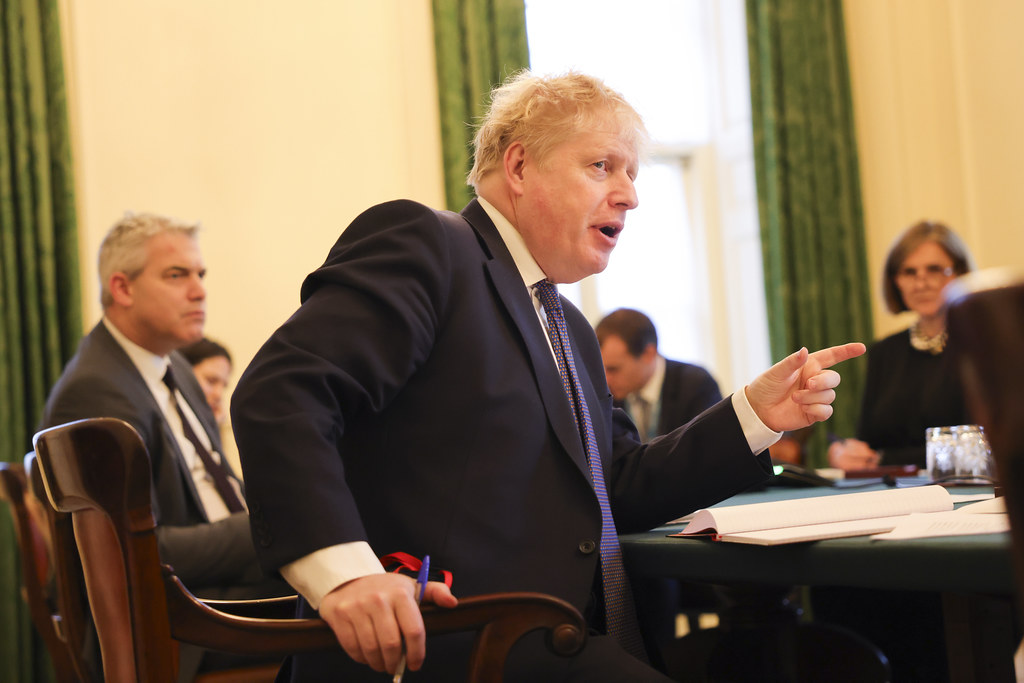
Since November last year, the Government’s approval ratings have plummeted, largely in response to the Owen Patterson and Christmas Party scandals. But why have these scandals impacted Johnson so much, where previously he could dance around such scandals almost unscathed? I argue that, whilst current examples of alleged misconduct threaten democratic norms no more than previous scandals, they hit so much harder because a less polarised political sphere means Johnson can no longer hide behind his populist appeal.
Throughout his political career Johnson’s populist image has undoubtably helped him survive scandals that would flatten most other politicians. Through populist rhetoric, Johnson has successfully justified to his supporters repeated attempts to bypass democratic institutions, by claiming to embody the collective “will of the people” in the pursuit of goals such as Brexit. Such political tenaciousness was demonstrated perfectly through his illegal prorogation of parliament in September 2019, with Johnson’s supporters justifying the prorogation as a necessary evil to “Get Brexit Done”, and party support thus remaining steady throughout the debacle. This willingness to overlook such indisputable threats to democratic governance became a staple of our politics in the Brexit years. LBC radio host James O’Brien coined the phenomenon the “footballification” of politics, with many people from either side of the political divide, in particular the Brexit divide, willing to ignore basic truths that contradicted their political ideology.
However, evidently something has changed since the end of October last year, in the wake of the Owen Patterson and Christmas Party scandals, with the Conservative Party plummeting in the polls, putting them roughly 11 points behind Labour in the Brexit-backing so-called “Red-Wall” seats. So why are so many of Johnson’s supporters unable to look the other way now, when they could 3 years ago? I mean is the breaking of covid restrictions, albeit multiple times, really a bigger threat to our democracy than preventing democratically-elected MPs from speaking in Parliament?
I believe the answer to this lies not so much in the scandals themselves, but in Britain’s changing political climate, with the real economic challenges faced by so many people in the last 2 years having pushed cultural issues, like immigration and national identity, that drove the Brexit divide, somewhat to the side-lines. Somehow in the wake of a global pandemic that has cost trillions of dollars and millions of lives, whether or not your next door neighbour speaks English doesn’t seem so important. Likewise, with regards to Brexit, the political conversation has moved on from the original question of remain vs leave to how well the government’s handling the situation, something the British public can find remarkable consensus on, thereby weakening this central political divide further.
To be clear, I am not arguing that the political sphere is as amiable as it was even 10 years ago, but merely suggesting that political debate has become slightly less polarised than at the peak of the Brexit debate. In this more objective political climate, populism inevitably falters, as it relies on generating an us vs them dichotomy that cannot support itself without a polarising political issue to get angry about. Thus, leaders who use populist rhetoric to try to mask perceived acts of political corruption will struggle when cultural issues don’t dominate the political agenda. In short, today more people in Britain react objectively to examples of political gerrymandering, not because they are more ideologically opposed to the party orchestrating it, but because the less polarising political climate allows them to be more objective.
So what’s next for Johnson’s government? Perhaps the Conservatives might soon elect a new leader to distance themselves from recent acts of perceived misconduct. Or perhaps Johnson may survive Partygate by shifting the political debate to a new issue on which to ignite a cultural war around. So far, the party seems to be attempting the latter, with so-called “Operation Red Meat” designed to win back the party’s core Brexiteer support base with a flood of right-wing populist initiatives, such as proposals to end the BBC’s license fee and to involve the Royal Navy in the Channel-patrol process. However, thus far the possibility of generating an intense culture war around either issue seems unlikely, with trust in BBC journalism across the country actually increasing during the pandemic. Another potential future culture war could lie in covid measures, with Johnson constantly trying to portray Labour as the party of lockdown. However, unlike in America, where mask-wearing and vaccine passes have become polarising cultural issues, it seems the British public are more reluctant to politicise such issues, with nearly 2/3 respondents saying they’d support the continuation of mask-wearing restrictions until covid is under control worldwide. In truth, it seems the majority of the population just isn’t in the mood currently to engage in culture-war politics on any of these issues.
Perhaps, this more objective political climate is only a temporary phenomenon, and soon the “footballification” of politics will begin again. However, for now it seems, if the Conservative Party wish to stay in office, they must stop relying on populist policies to shield them from allegations of corruption, as the public just isn’t in the mood to ignore them. Instead the party must distance themselves from recent events as much as possible. Perhaps this will only be possible with a change in leadership…



Average Rating